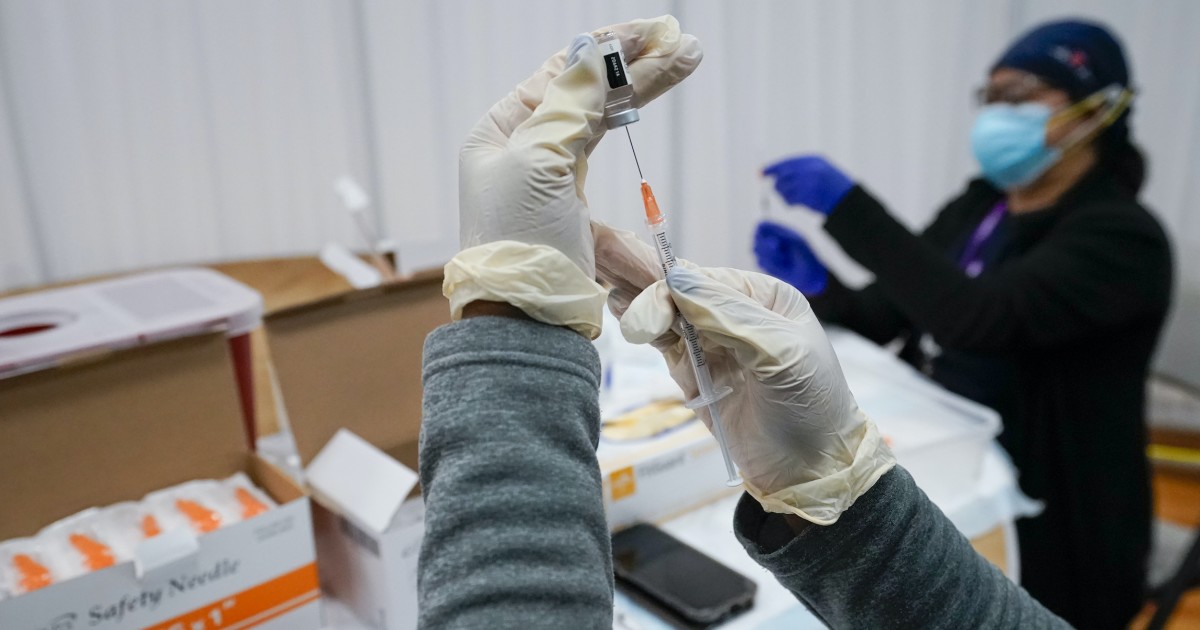
Adults in rural areas are more likely to refuse the coronavirus vaccine than their urban and suburban counterparts, signaling that the federal vaccination campaign still faces a problem convincing some people to get the shots.
The Kaiser Family Foundation reported that 21% of adults living in rural parts of the United States would “definitely not” get the coronavirus vaccine once it became available to them, compared with 13% of adults in suburban areas and 10% in urban areas. The proportion of rural residents who said in March that they definitely would not get the shots was also consistent with previous months’ polling results. Almost three-quarters of them identified as Republican or Republican-leaning, and roughly 4 in 10 identified as white evangelical Christians.
PFIZER STUDY SHOWS 100% EFFICACY IN ADOLESCENT COVID-19 VACCINATIONS
“There’s nothing inherently unique about living in a rural area that makes people balk at getting vaccinated,” KFF President Drew Altman said. “It’s just that rural areas have a larger share of people in the most vaccine-resistant groups: Republicans and White Evangelical Christians.”
The Biden administration has made a push to convince more people in rural and poor areas to get the vaccine as soon as it becomes available to them, which is bound to be soon as most states will have opened up eligibility for the shots to every adult. The federal government has allocated nearly $ 10 billion to expand access to vaccines in these areas, funding that comes in part from the recently enacted American Rescue Plan worth about $ 1.9 trillion. The Biden administration suggested states could use some of the funding to support rural and faith-based organizations to canvas their neighborhoods to schedule vaccine appointments.
Senate Minority Leader Mitch McConnell has also tried to use his influence among conservatives to urge them to get vaccinated when they can.
“I saw on some program last week that Republican men, curiously enough, might be reluctant to take the vaccine,” McConnell told reporters in Kentucky earlier this week. “I’m a Republican man, and I want to say to everyone, we need to take this vaccine.”
President Joe Biden applauded McConnell for his appeals to Republican allies, saying that McConnell “keeps speaking to them, which I give him credit for … And I’ll add a phrase he didn’t, but I think he believes: It’s a patriotic responsibility you have.”
White House press secretary Jen Psaki added Wednesday, “We certainly do think it’s a good step that Sen. McConnell conveyed the importance and the efficacy of taking the vaccine.”
Vaccination uptake in rural areas has so far outpaced suburban and urban areas. More rural residents, 39%, said they had received at least one dose, compared with 31% people in suburban and urban areas each. The findings suggest that the positive trend in rural vaccination rates is about to dip, according to the KFF.
The polling results also signal that some vaccine hesitancy remains among certain shares of the adult population despite increased accessibility. People in rural, suburban, and urban areas were similarly able to get appointments for the shots in less than 15 minutes. However, only 16% of rural residents said they would get the shot as soon as they could, compared to 28% and 35% of suburban and urban residents, respectively.
THE STATES THAT HAVE OPENED VACCINE ELIGIBILITY TO ALL ADULTS
To date, about 175 million doses of vaccines have been administered in the U.S. at an average rate of more than 3 million shots each day.
